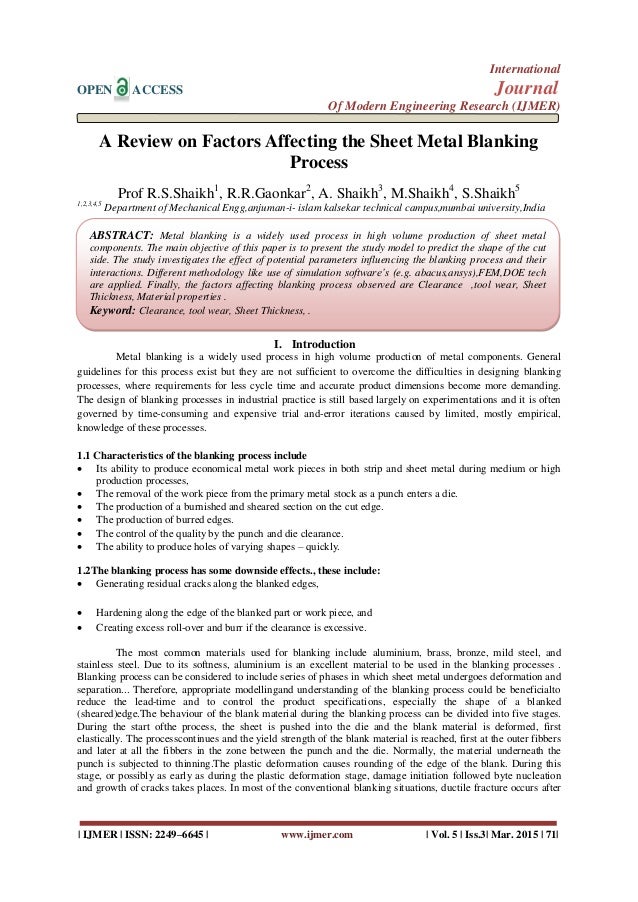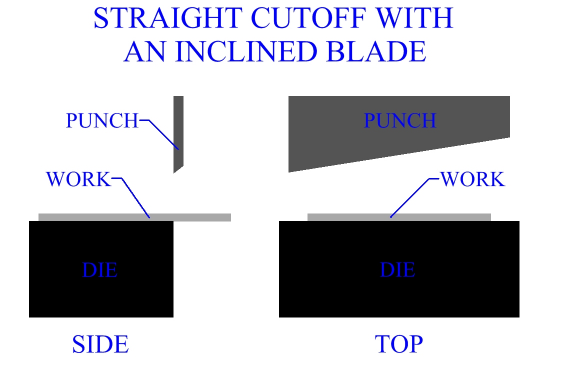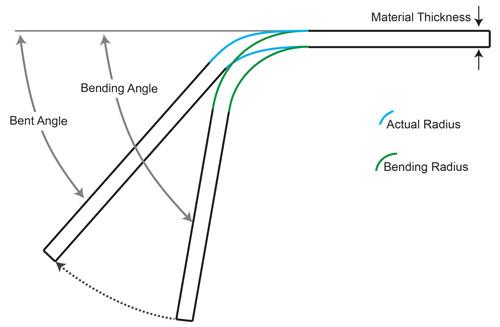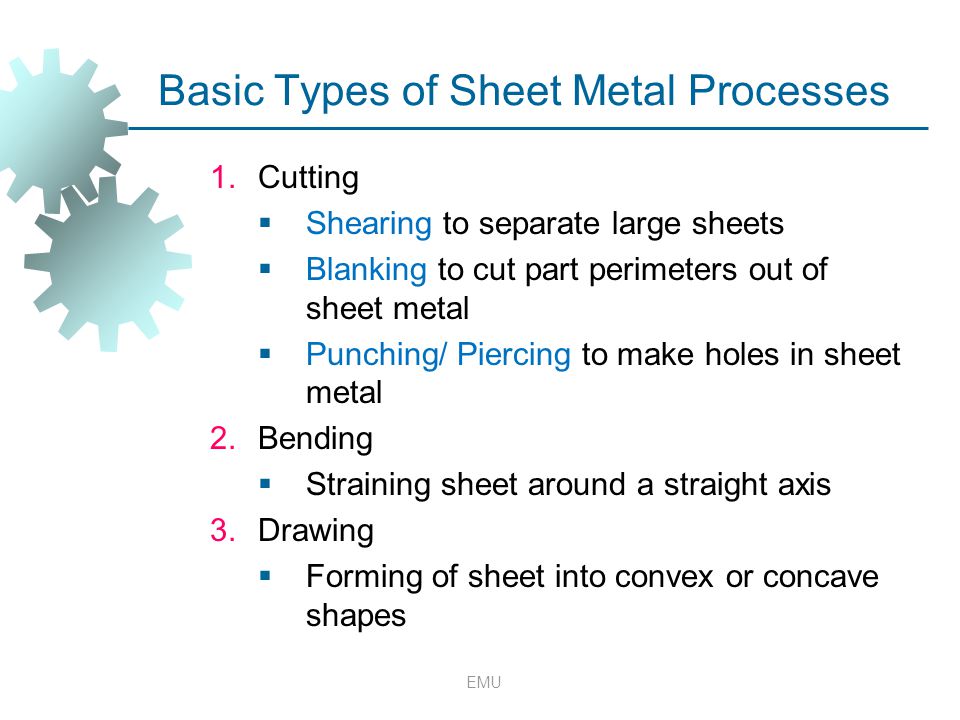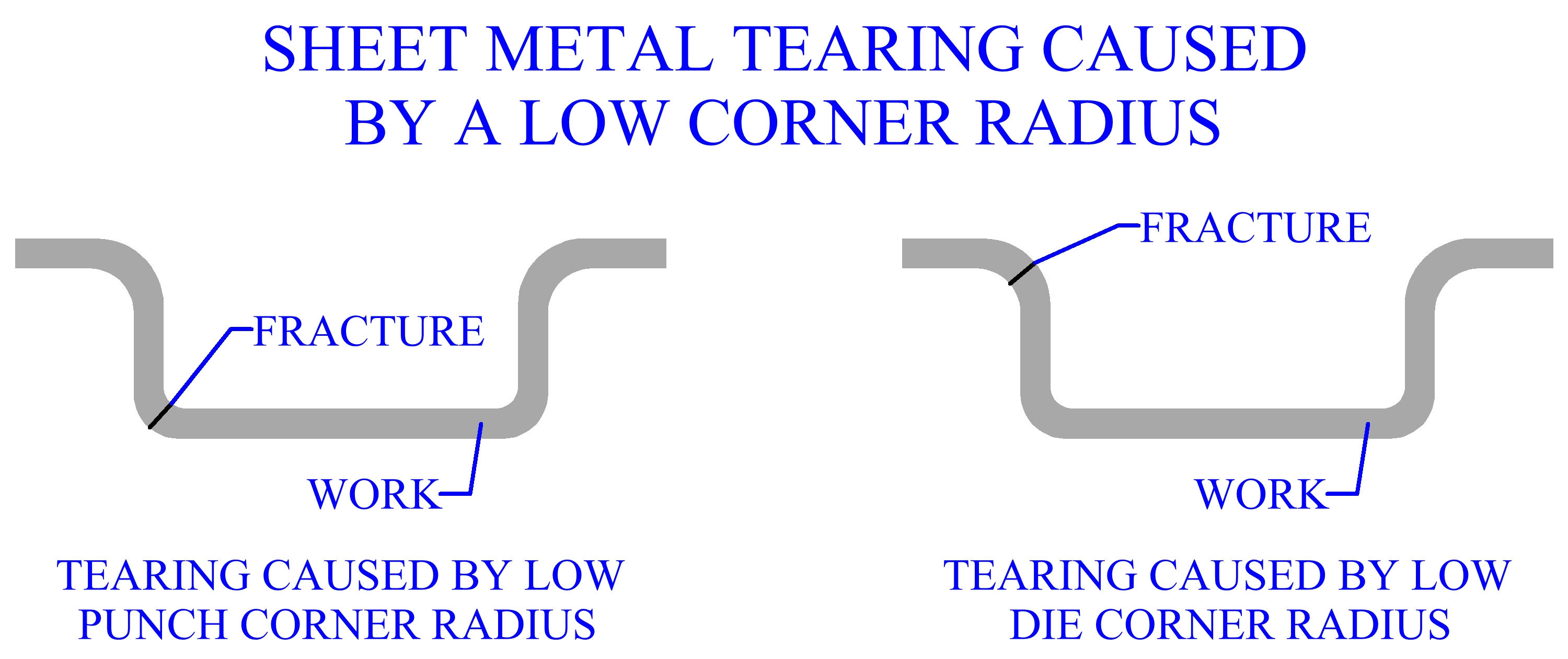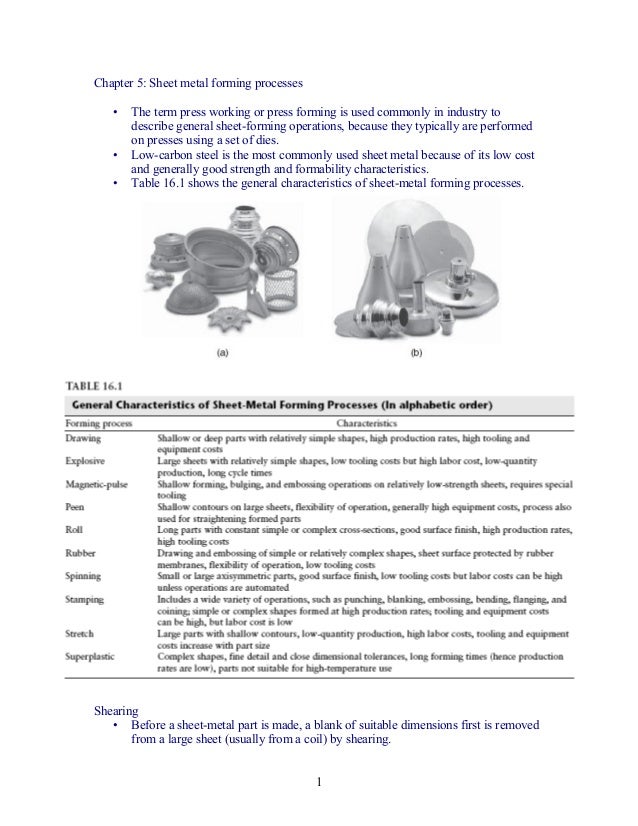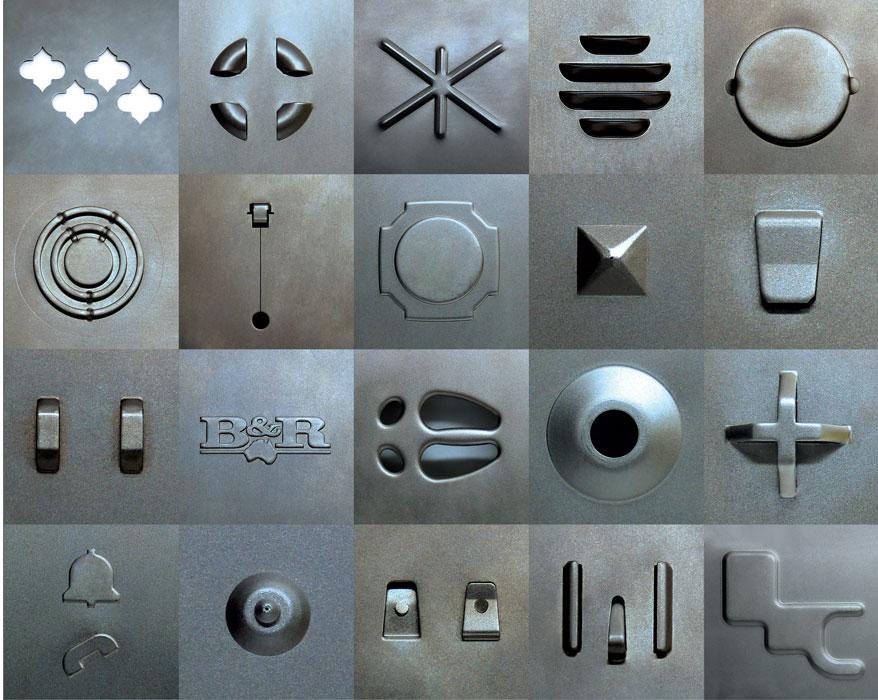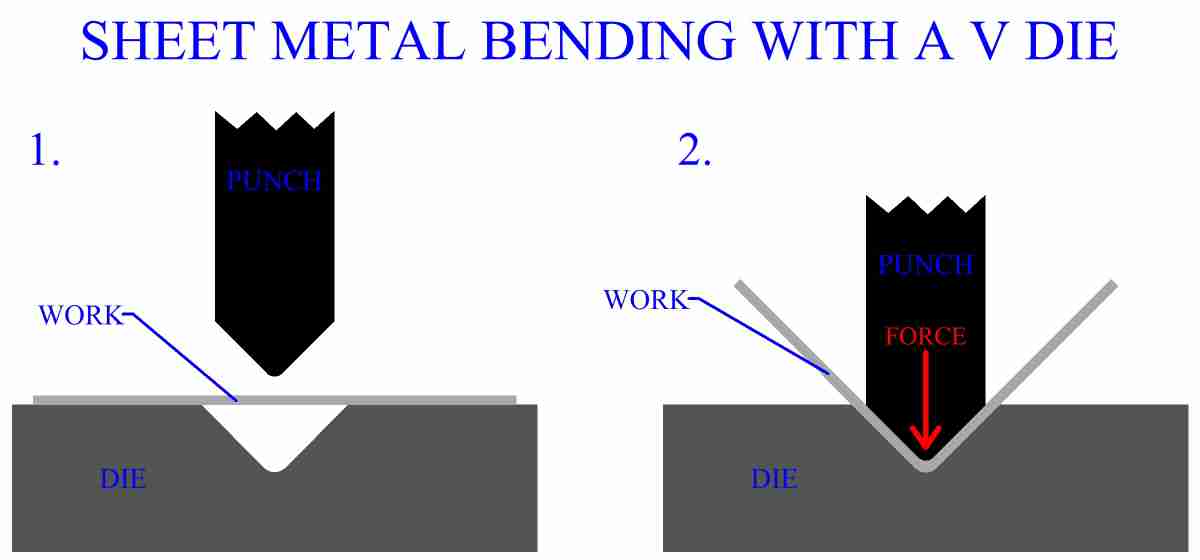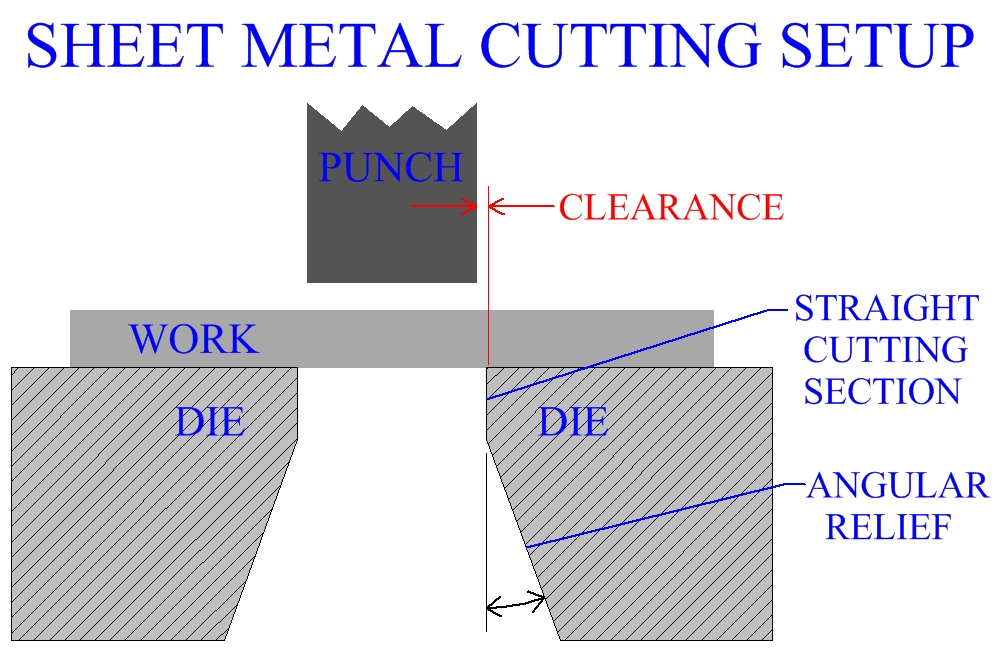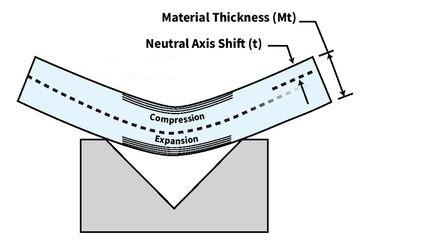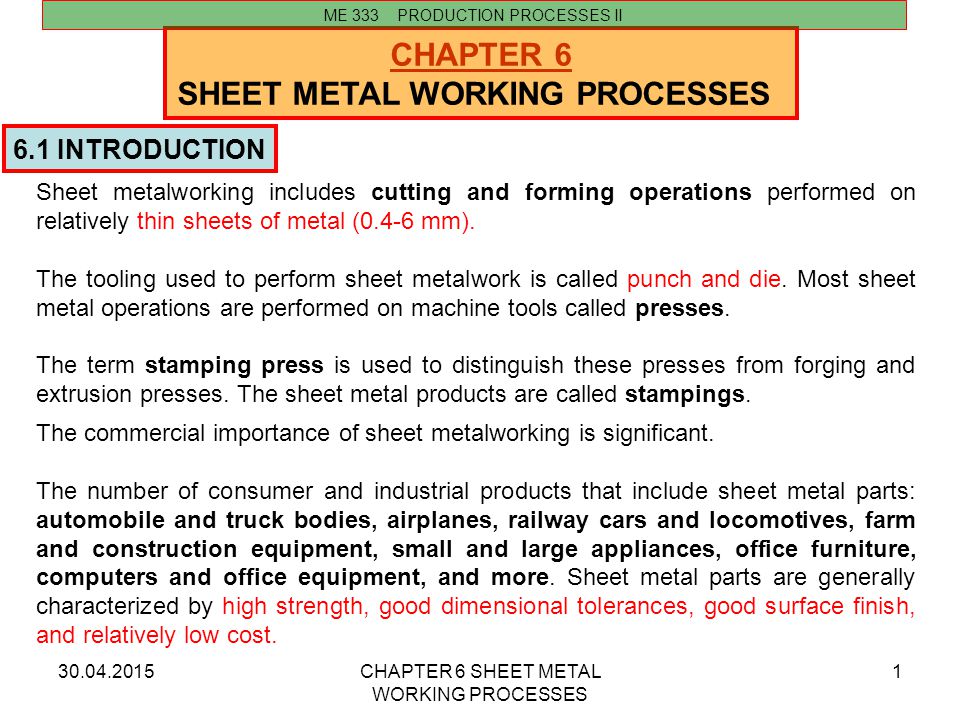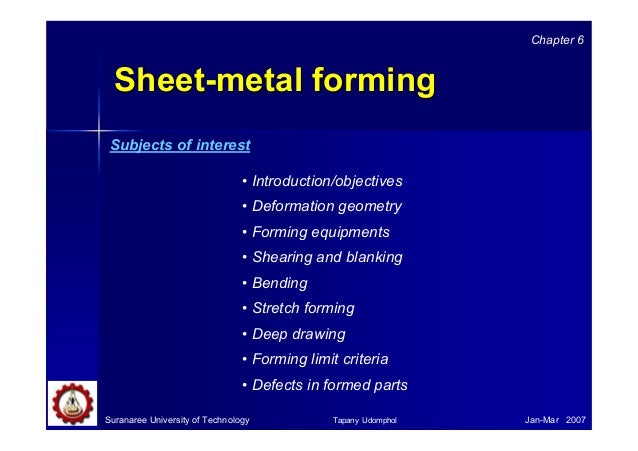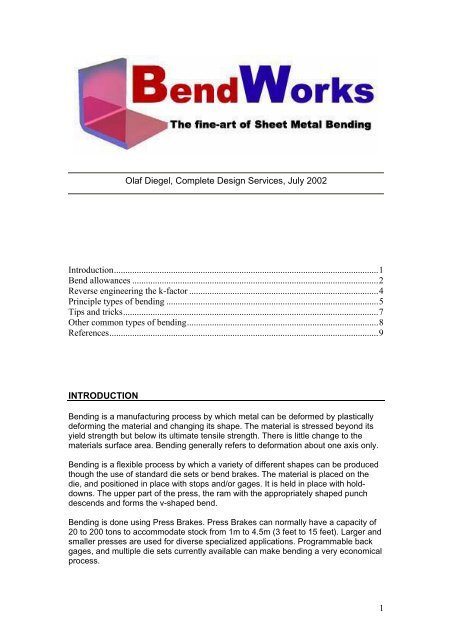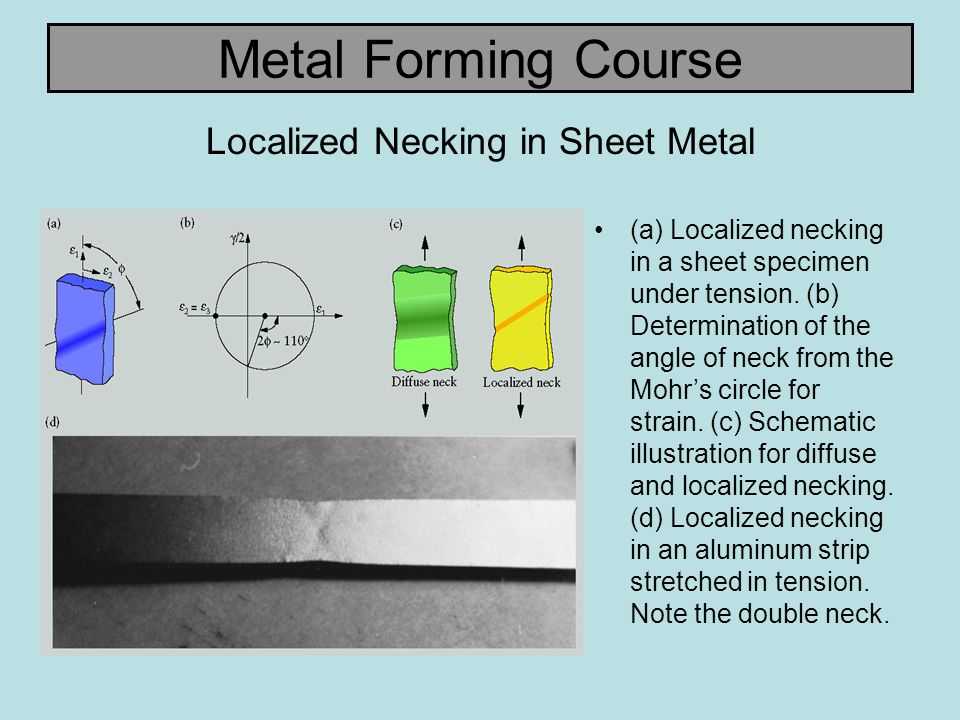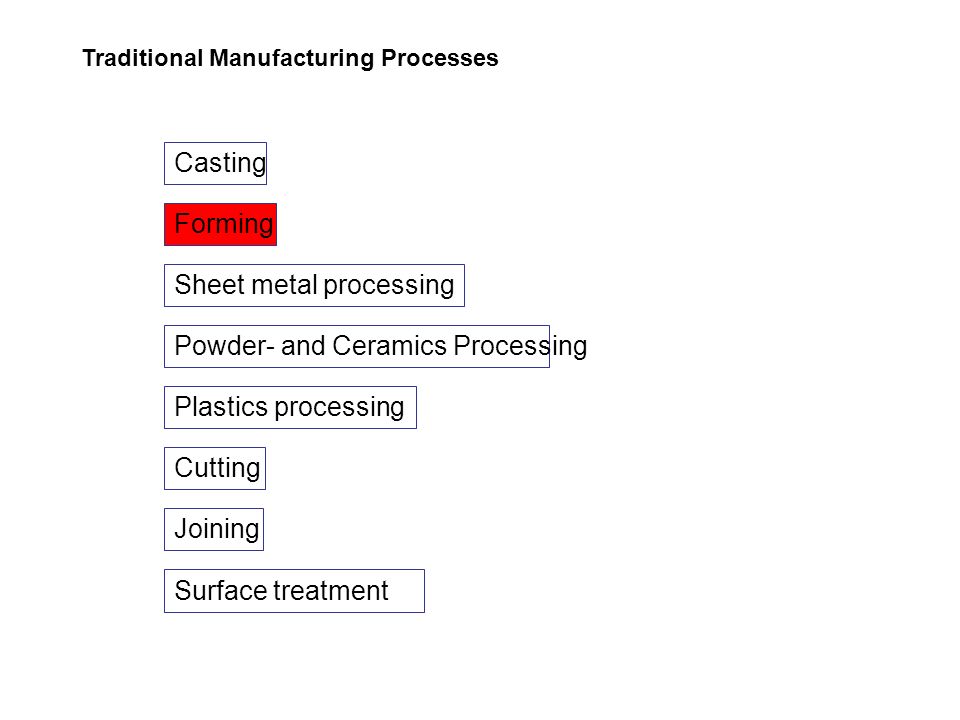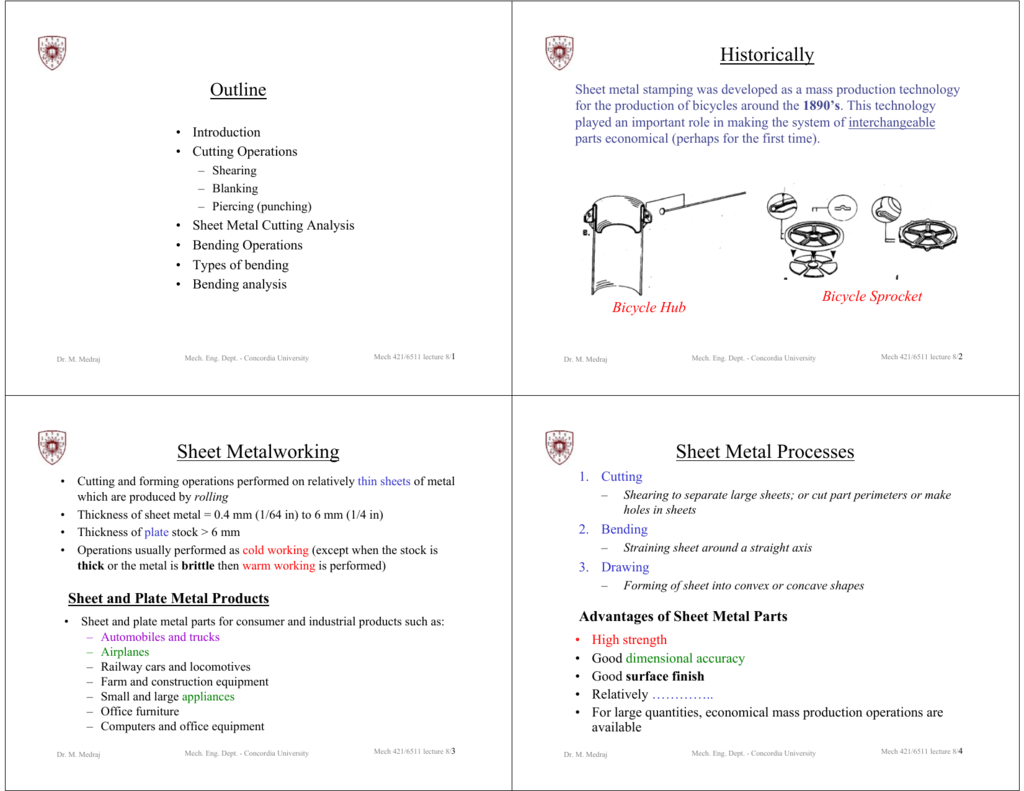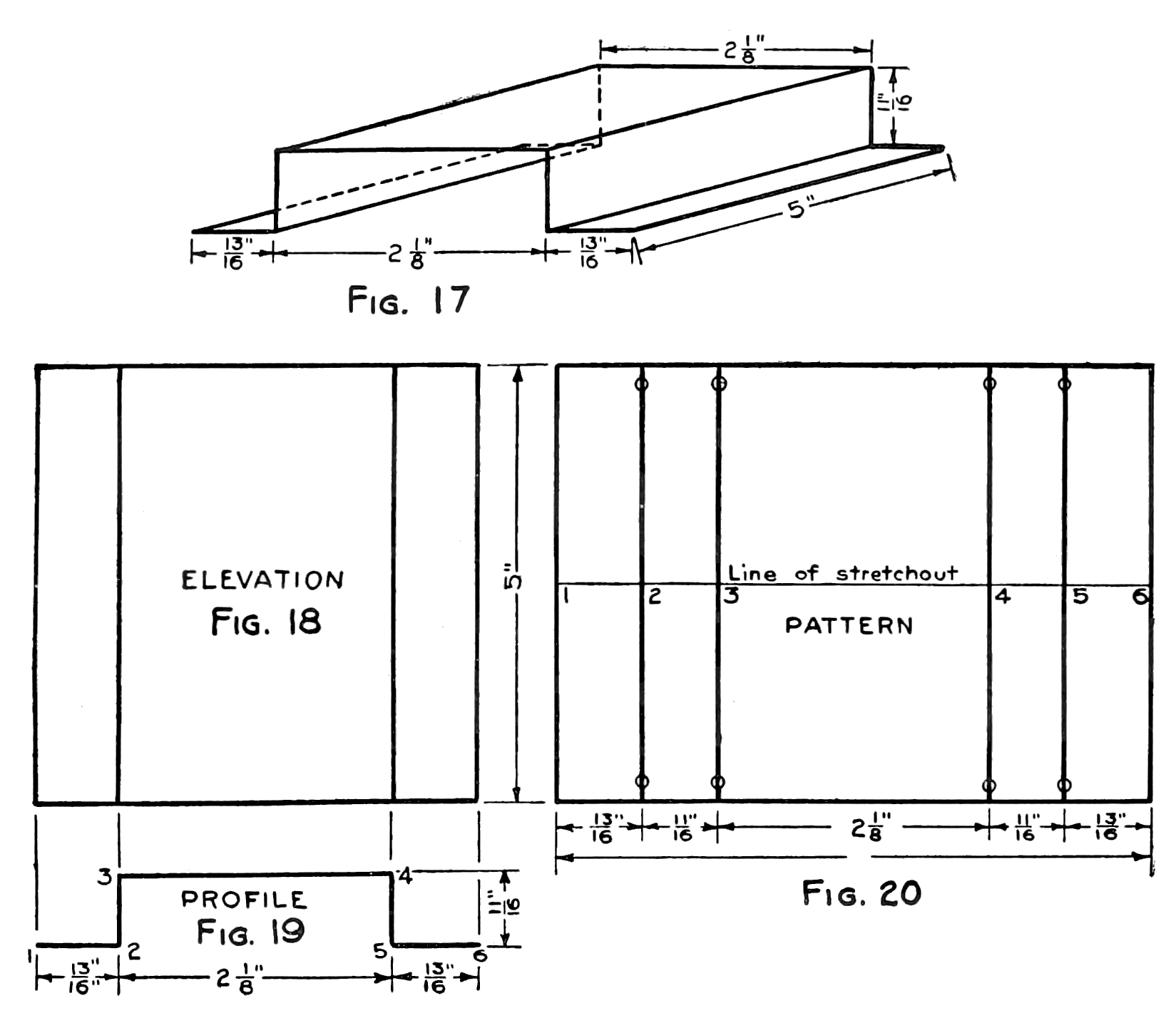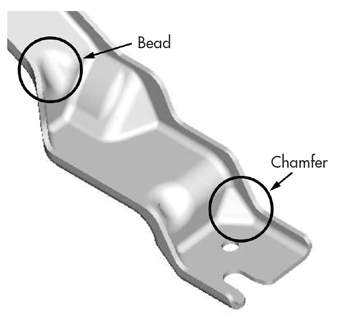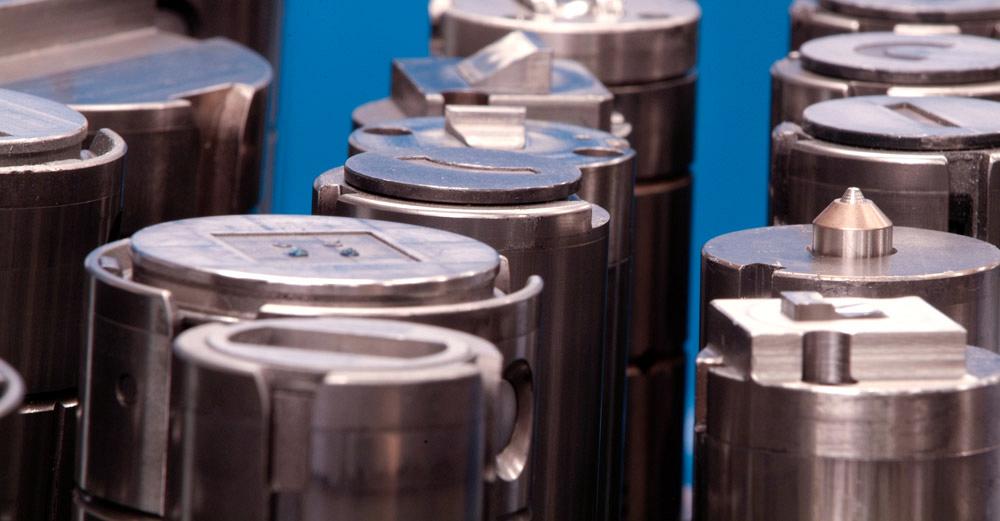A long time industry rule of thumb used by die makers for the clearance between the punch and the die button is 5 of the stock thickness per side.
As sheet metal stock thickness increases the clearance between punch and die should.
The bend angle is determined by the depth that the punch forces the sheet into the die.
30 table 1 recommended die clearance table.
In manufacturing industry there is a range of optimum values for specific processes clearances may span from 1 to 30 of sheet thickness.
16 6 as sheet metal stock hardness increases in a blanking operation the clearance between punch and die should be a decreased b increased or c remain the same.
The percentage of the die clearance to the material thickness.
The press brake contains an upper tool called the punch and lower tool called the die between which the sheet metal is placed.
This adds stress to the sheet and increases distortion.
As sheet metal stock hardness increases the clearance between punch and die should.
B a circular sheet metal slug produced in a hole punching operation will have the same diameter as a the die opening or b the punch.
Next make sure you have the correct die clearance for the material type and thickness you re punching see figure 2.
Determine the punch and die clearance by experience.
As sheet metal stock hardness increases in a blanking operation the clearance between punch and die should be a decreased b increased or c remain the same.
As sheet metal stock hardness increases in a blanking operation the clearance between punch and die should be a decreased b increased or c remain the same.
If you have too much clearance the material will stretch before the material fractures to produce the slug.
Min service life of dies.
B be increased a round sheet metal slug produced in a hole punching operation will have the same diameter as.
20 25 long service life of dies.
30 heavy duty die clearance.
A large factor is the type of work material and its temper.
The sheet is placed between the two and held in place by the backstop.
This depth is precisely controlled to achieve the required bend.
A be decreased b be increased or c be unaffected.
This provided an acceptable burr height and slug control.
The greater the sheet metal thickness the higher the clearance value should be.
Generally typical values span from 3 to 8 of sheet thickness.
